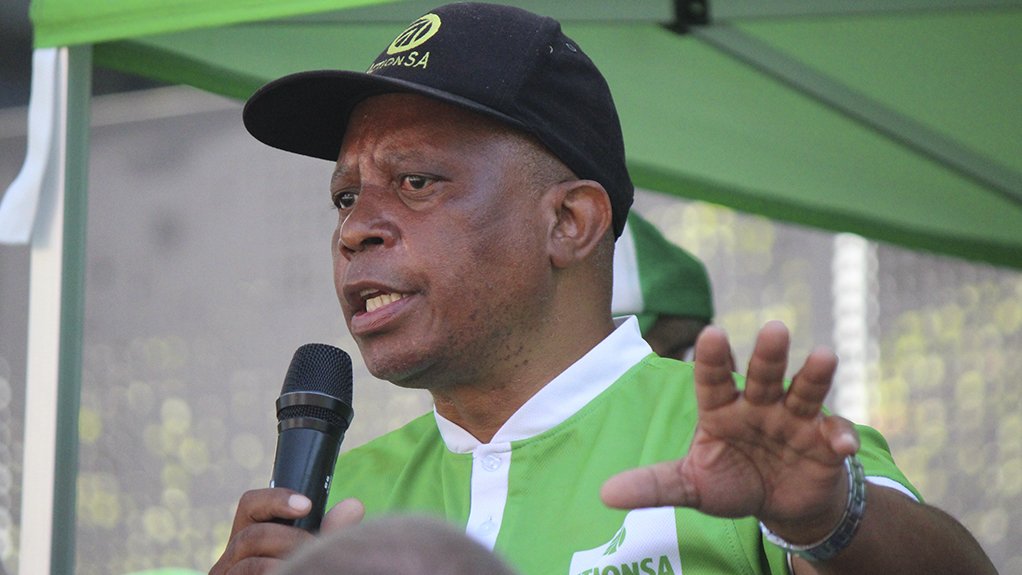ActionSA leader Herman Mashaba notes there is an urgent need to address tertiary education funding, alongside reforms to the country’s institutions of learning, to “fix the country”.
Mashaba was speaking during a press conference on Tuesday, held at Gordon Institute of Business Science in Johannesburg, where he committed that an ActionSA government would significantly expand and improve access to a variety of post-matric opportunities, whether through traditional academic routes in universities, or via colleges dedicated to technical skills and vocational training.
He said institutions such as the National Student Financial Aid Scheme (NSFAS) have been plagued with corruption allegations as thousands of students go homeless or without food.
“Tertiary institutions across the country suffer from maladministration and our very own Ministers face allegations of buying their degrees, thereby reducing the credibility of South African qualifications. And, our centres of higher learning fail to address the critical skills shortage currently facing South Africa, from software developers to engineers and scientists,” he said.
Mashaba said while his party worked towards growing the economy through its plan for economic prosperity, it would achieve its goal of ensuring that no academically qualified student was excluded from further education through aggressive reprioritisation of the national Budget away from wasteful expenditure such as State-owned enterprise (SOE) bailouts and VIP security.
He said his party would ensure that student funding was a top priority, ahead of any government expense.
“Combined with reforms to NSFAS alongside the introduction of our Opportunity Fund, we can remove barriers to funding access for all South Africans. And with the establishment of ActionSA’s one-of-a-kind Opportunity Fund, we will ensure that public funds that currently go to enriching entrepreneurs are used to empower the young people of South Africa,” he promised.
The Opportunity Fund will radically expand access to tertiary education by not only funding students, but also building new higher education facilities.
Mashaba believes South Africa’s higher education centres are in crisis, while too many students are prohibited from accessing tertiary education owing to financial exclusion.
Mashaba said despite repeated promises and investigations into higher education funding, government had made little progress in expanding access to higher education.
“It is simply unacceptable that 30 years after democracy students are excluded from obtaining a tertiary education because they lack the funds. Not while our government wastes billions on propping up failing SOEs and allows limited public funds to be stolen by self-interested cadres,” he said.
ActionSA believes that quality education is one of the best tools for empowerment and it will improve lives.
“That is why we have committed that under an ActionSA government, no academically qualifying student will be excluded from further education because they lack the funds to study,” he emphasised.
EXPANDING ACCESS TO FURTHER EDUCATION
Mashaba explained that his party will expand access to further education not only by removing financial barriers, but through a comprehensive plan to address the institutional failures of the higher education system.
He admitted that this would not happen overnight, saying ActionSA believed that government had a responsibility to be transparent about what was possible.
“I say this because while it is our dream that one day we can introduce fee-free education for all students, we must accept the reality we face as a country that suffers from low economic growth, a declining tax base and sustained unemployment of over 40%,” he said.
He said ActionSA planned to increase financial support to academically qualifying students, including tuition, accommodation and living expenses, and also expand its network of quality institutions of higher education to alleviate capacity constraints.
If elected to govern, the party’s plan is to invest in new public-sector student accommodation opportunities to address the shortages currently faced, while also increasing the opportunities for technical and vocational education and training (TVET) by investing in new TVET colleges.
It will also re-introduce specialised training colleges such as teaching, policing, nursing, agriculture and artisanal skills, such as plumbing and electrical work and expand the lifelong skills development programmes, to ensure people have opportunities to gain additional skills, throughout their careers.
EMAIL THIS ARTICLE SAVE THIS ARTICLE ARTICLE ENQUIRY
To subscribe email subscriptions@creamermedia.co.za or click here
To advertise email advertising@creamermedia.co.za or click here











